Zombies - Interview
by Lisa Torem
published: 10 / 4 / 2020
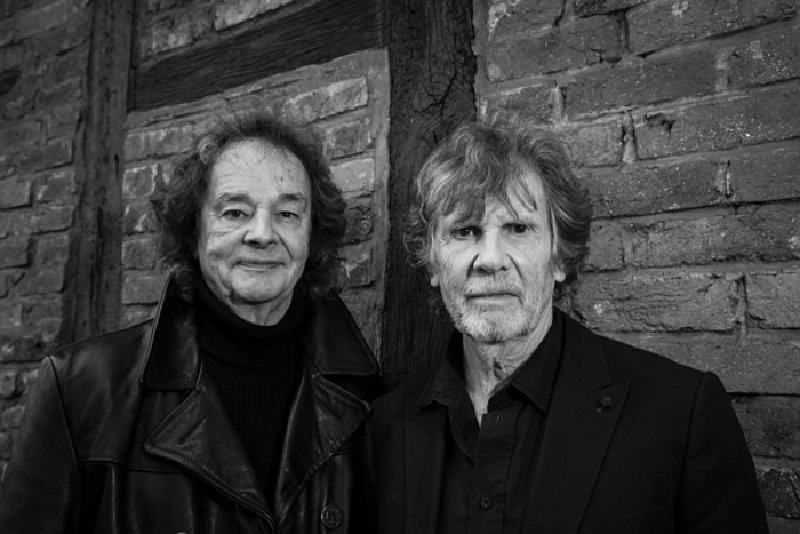
intro
Lisa Torem catches up with Zombies co-founder Colin Blunstone about their upcoming UK tour and much more.
The Zombies - the English rock band who hit the American charts in 1965 with as much punch as the Beatles had a year earlier - served as a major influence during the pop/psychedelic era. From the definitive 1968 album 'Odessey & Oracle' to 2015's 'Still Got That Hunger' and with the promise of more material on the way, few bands can compete with their admirable legacy. Colin Blunstone enjoyed a solo career, performing songs such as 'What Becomes of the Brokenhearted' and 'Old and Wise' after the original line-up disbanded, but then Rod Argent and Colin reformed the band in 2000. Since that time, and with a few member changes, they have performed worldwide on land and sea and are soon embarking, after a successful American tour, on a 10-date tour of the UK. The last time I touched base with The Zombies' front man Colin Blunstone, he'd expressed hope that the band would be inducted into the Rock and Roll Hall of Fame. At that time the band remained on their fourth nomination, but since that interview, on March 29, 2019, the British Invasion stalwarts finally got their well-deserved induction, alongside the likes of Stevie Nicks, Radiohead, The Cure, Def Leppard, Janet Jackson and Roxy Music. As part of the festivities, the Zombies performed at Brooklyn's Barclay Center amidst a riveting barrage of horns and tandem drumming that accentuated their bright harmonies. But there was also a sense of mystical serendipity in their wake. According to their website, thezombiesmusic.com, “the “Induction Ceremony took place exactly 50 years to the day after the Zombies' classic 'Time of the Season' first hit number one on the charts in America”. PB: Hi Colin. What precluded this auspicious event? How much time was allocated for rehearsal? Any surprises? CB: We were asked to sing specific songs, but actually it varied because some people didn't want to perform at the induction ceremony and so we were asked to do an extra song. We were doing, 'She's Not There', 'Time of the Season', and 'Tell Her No' was the third song, and because we were asked to add a song, we added 'This Will Be Our Year'. It was comparatively simple for us because, you know, we tour all the time, but of course we were actually playing with the original Zombies. We weren't playing with our current lineup (which consists of founding members Colin Blunstone and Rod Argent plus drummer Steve Rodford, guitarist Tom Toomey and bassist Soren Koch). We were playing with our original band which, luckily, over the last couple of years, they have come out on tour with us. We were familiar with playing live all of these songs. For some other bands, who wouldn't have been playing so much, it might have been challenging, but it was fine for us. They requested certain songs. We asked for the horns and the Hall of Fame requested for them to come. I met them at the sound check. As far as rehearsing was concerned, we had a day in the rehearsal studio the day before where we ran through the songs and then, I think, we had one or two entries per sound check. When you get to the Barclay Center, there's no way you're going to be rehearsing. You have to know it by then. It's up to them for sound check and camera angles because it's going to be televised. We played through the set a couple of times and all the guys, the sound check and PA were just magnificent, the best in the world. They made it very easy. It was a wonderful experience - very, very exciting. It was a great show. We were playing in front of 17,000 people and all the greats and the goods in the music industry are in front of that audience, so it's not without its own questions (laughs). There are people with television cameras streaming in front of you. It really keeps you on your toes, if you know what I mean. PB: You also participated in a jam session. CB: We played our set through once beforehand, but Ian Hunter, who sang 'All the Young Dudes' on the original record of that, I think, he was traveling. He wasn't there when we ran through it. Someone else sang lead. It certainly wasn't me because I'm familiar with that song, everyone in the world knows that song and I know it really well, but I really couldn't sing the lead on it, but I thought it sounded really great. I performed it as a bystander. I thought I could hear it from a different way. It really was exciting, especially taking into account that we had only played it through once in the morning. But when you've got great players, they can do it. They can just do it. With things like that, usually they work out wonderfully well and there is lot of excitement even if there are a few mistakes. Great players enjoy that. It's just a smile and a shrug of the shoulders and on we go. If you haven't rehearsed something, it actually could just fall apart. It's very unlikely with musicians of that caliber, but things happen (laughs). There is that element of danger when you go into something, like when everyone is playing and they don't really know one another and they haven't played together before. It's very exciting but maybe a little bit scary. PB: What was the biggest take away for you? Being acknowledged by your fans or your industry peers? CB: I don't think, really, you have to differentiate between those two because they both mean as much. But to be acknowledged by our fans? We had more than 328,000 votes in the public online poll. That's an astronomically large amount of votes. I couldn't believe it. Then, of course, our peers voted for us in the actual rock hall. It was great on both counts, actually. It was certainly career reaffirming. Your career plays such a large part in your life. You think: "has it all been worth it?" In the music business there are many ups and downs and you have to get through those to get to the other side and you doubt yourself. And that's where I think that a reward like this is such a wonderful thing. I'm not going to get carried away with it because we've got fresh aims now. All the time, we're trying to do new things. But just to pause for a moment and get that recognition from our peers and from our fans that so far we've done okay. It was absolutely wonderful. Also, my wife doesn't travel with the band very often and she doesn't come to shows all that often but she was there that night in Brooklyn, and it's wonderful for her, but also, it's wonderful for me because she was there to see this most incredible induction ceremony. Believe me, it was very exciting. And it went on for some time from start to finish but it was just great. We were driven back to the hotel after the awards and sat around and had a chat, sharing memories from the past. I know, that there were lots of parties that we were invited to, but it was so late and we were so tired. And it was probably best that we had just an hour to ourselves. PB: You talked about having a series of highs and lows over the course of your career. Did you have to overcome any major obstacles to achieve your level of success? CB: Many. Although I don't think I'm any different than anyone else. To start with, with the original Zombies, we were very, very poorly managed. I never know how much to say about this subject, because the main person is no longer alive to defend himself. It was absolutely awful and on every level. He had no imagination, no commitment, and I'm afraid rather challenging financial arrangements as well. On every level, I feel the original Zombies would have had a different career with different management. I really do. And it makes me sad. I try not to think too much about the past but it is disappointing and I think It's a great shame that we didn't get involved with people with vision because I think everything could have been very different. So that was the first obstacle to get over. At the end of the original Zombies way back in 1967, I thought that was the end of my career. I had no plan B and it wasn't until a couple of years after that, that out of the blue, 'Time of the Season' was a huge hit in the States. Producers, managers and people from record companies started to contact me. I had nothing. I had no contact with the music business at all but I started to get offers and that's when I started back again, so that was the first hurdle to get over. People in those days thought that a career in the music business would last two or three years if you were lucky. And anybody who spoke any differently? Believe me. That's how it was in the music business. And nobody realized that you could have a lifetime career in the music business, and that's what happened, certainly for me, apart from one year out of the business. I've been really, really fortunate. There were other things. In the mid '70s, I started to lose control of my voice, really. In regard to intonation, I couldn't sing reliably up to an e and g. And particularly, when you're recording, there's no two ways about it. You have to be on the note. I realized - it took many years - I had medical problems in my throat that were affecting my voice. I found out that was happening. It took a long, long time. Eventually it was sorted out and I'm back to where I was. That was the second obstacle. Those were the two main ones. Otherwise, it was the fighting, day by day. When you're in a band, it is a continual fight: finances, and any kind of recognition, going up the charts. It's very difficult for a classic band like the Zombies to get radio play to get into the charts. It's a continual fight. And radio programming is not built to accommodate a band like us. Those stations won't play our material and Top 40 won't play our material. PB: You say that in the early years, you suffered from poor management. How does that compare with what's happened over the current decade? I imagine Keira Knightley's elegance in the Chanel advert, where 'She's Not There' serves as a musical backdrop, aroused a lot of senses. CB: We're managed very well now. We're managed by a company in New York and they're at the opposite end of the spectrum to the way we were managed in the 1960s. They're always looking at ways to change people's perspectives about us so that people don't think of us as simply a '60s band, because we're writing and recording new material. The Chanel ad? There's been many other ads as well. There's a film called 'All the Money in the World' with Christopher Plummer and it's about a very wealthy guy called John Paul Getty. We had a song in that. We had a song in 'Kill Bill'. We've had songs in many films - I'm just thinking of a few. Some time ago, there was a film called 'The Awakening' and then there was a film that was not released in the States called 'The Krays' - they were very famous London gangsters. We had a song in there as well. There's another film, 'The Aquatic'. That was an obscure song. It wasn't a hit song. It's another way. People think that if they hear a song in a commercial or in a film, you get the same reaction as if it's been a hit. But sometimes, these songs actually weren't hits. People think it was a hit. You know? PB: Can you fill us in on your upcoming tour of the UK? Also, is there a difference in preparing for a UK tour versus an American tour? Do you feel more comfortable/excited at home or abroad? CB: Well, first of all, we'll play a slightly different programme. We'll alter it to suit wherever we're playing. I imagine that in the UK, we'd probably play two or three different songs that I've had hits with, so we will alter the music, and I think, that in America touring is more sophisticated than in the UK. In many ways, the arrangements are made much further ahead, they're much more detailed. They're in constant contact with the promoters and the stage manager. In the UK, you just plan to turn up and take it from there, really. It's a lot more comprehensive, the planning that goes into the States. Personally, we play bigger venues in the States, as well, which means that back stage can be a completely different world to what you might find in the UK. It's just more luxurious backstage, generally speaking. PB: I've had the pleasure of seeing The Zombies play intimate clubs in the states. It's magical. CB: I love it, too. I love a variety of venues and we do sometimes play clubs and theaters. And we also play festivals. It's the best of both worlds. I really like that: the variety of venues that we play. There are very few '60s bands that are still touring that you could ever see in a club. People like the Who and the Stones, seeing them play in a club is very unlikely. And there aren't that many other bands, certainly not British bands playing the states. There are a couple more over here, but it is quite special. It's special for us and I hope that it's special for the audience, that we're able to do that, and with mostly the original line-up. We've got the main songwriter, Rod Argent, certainly the songwriter of all the hits and a great singer. And that does give us sort of a rarity value because so much time has gone by because '60s bands just aren't touring anymore so, hopefully, that makes it a bit special for the audience because it's special for us. PB: A nineteen-year-old college student wanted to know how songs such as 'A Rose for Emily', which she believed was inspired from folklore, became realised as full arrangements. CB: The title was taken from a very famous book, but that is the only similarity that was taken from the book, other than the title. I remember, that with that particular song, Rod felt that he'd been slacking with his songwriting. Maybe he got up, wrote that song, had lunch. He wrote it very quickly and I think it's a very beautiful song. We still play that song. It's not every night, regularly, but we do play that song. I think there may be a couple of other instances, as far as song titles, that are similar or the same as famous books or even films, but it's just the title, there isn't anything else taken. PB: In regards to 'Care of Cell 44', she also related strongly, as she had a friend who had been incarcerated. How interesting that a song from that era still hits home so strongly with a younger person. Does it surprise you that classic songs inspire young people? CB: Absolutely. I must say that that's a wonderful lyric. It's a Rod Argent song. It's so unusual. It's a love song. Presumably, it's a guy singing to his girlfriend in prison. And yet, it's a very happy song. You'd think it would have to be sad, with regret. But actually, it's a very upbeat song. I thought, that that was the most commercial track on the album, I'll be honest. 'Time of the Season' turned out to be the most original song but the fact is, everything surprises me about the songs in some way. It is a mystery to me. I've tried to think it through. The fact that we're still playing all this time, the fact that all over the world they know our music. I'm not feeling negative or gloomy about it, but it appeared to us that our music had been forgotten, but somehow, it's come around again. Maybe all music is cyclical and it comes around again. We do notice, especially in America, there's a whole cross-section of ages in the audience and it's very heartening and it's great how people from the sixties have followed us and supported us through. But it's also great to see the young, the teenagers and twenty-somethings in the audience, who weren't even born when we made those records. It's a real lift when you're onstage and you see that cross section in the audience. PB: As far as interpretation, when you sing a song like, 'Tell Her No', I detect a deep sense of longing and even desperation in your voice and mannerisms because you come across so emotionally. Do you draw on your past when you perform? CB: Oh, I probably did when I sang it. I try to live a lyric when I'm performing it. That's one thing I really do. Sometimes people say that musicians are just going through the motions but I couldn't do it like that. I relive the lyric every time I sing it, although, the honest truth, and I have said this before, as far as 'Tell Her No', we performed it many times in the UK and we did four or five backing tracks without me singing at all and at about twelve o'clock, they finished doing the backing tracks in Decca Studios in West Hampton. And they had to wake me up to sing, 'Tell Her No', I'd fallen asleep, and because of that, on the second chorus, I actually mumble some of the lyrics. I came back into the control room and said I was sorry, and that maybe I can just drop in and do that bit again? And the producer, who was very stern, he said, 'Don't worry about that. Next song.' I was flabbergasted. It became a top five single in the states and sold about a million copies, but there's definitely a mumble in there. PB: But a very sincere mumble. If a movie were made about your life, what scene would take precedence? CB: I think, somewhere, towards the end, it would be great to see a Rock and Roll Hall of Fame excerpt. It was such a magical evening. But when 'She's Not There' was a hit, we were very young. We were naïve enough to think, that possibly, it could be a hit. But later on, when we realized all of the pitfalls, we realized what a long shot it is to actually having a hit record, the excitement of that single was fantastic. We arrived in New York at 19 years old with a number one record. There have been many highlights. I think this whole thing about the band, having a second life, is the most heartening and exciting thing. It managed to get the band to the level it is at the moment. With no hit records and no extensive radio play, mainly by touring and by word-of-mouth. I think, overall, that is the most exciting thing that we've managed to do. I don't understand how it's happened, but I'm eternally grateful that it had happened. PB: The Zombies are working on new material. Can you give us an update? CB: We've started three new songs. Rod is actually building a studio in one of the out buildings of his house and it's working but they're going to be doing some fine tuning this weekend. It will be incredible after this weekend and then we can get back into it. No one knows when an album is going to be finished, to be absolutely honest, especially when you're writing new material, which we are. But we would hope to finish the album this year, and hopefully, it will be ready for release next year. PB: Final question. Are there any superhero powers you'd love to possess? CB: (laughs) Oh, I've never been terribly involved in this side of life. They do seem to have fairly limited powers, don't they? One can fly. One can't. I don't know, really. I think I'd settle for any of them to be honest. I'm so the opposite of a superhero; any of their super intelligences would be very welcome. I wouldn't be fussy. PB: Thank you. Lisa Torem would like to thank NYU sophomore Mella Lafrance for her contributions to this interview.
Band Links:-
https://www.thezombiesmusic.com/https://en-gb.facebook.com/thezombiesmusic/
https://twitter.com/TheZombiesMusic
http://www.colinblunstone.net/
https://en-gb.facebook.com/colinblunstone
https://twitter.com/colinblunstone
Have a Listen:-
Picture Gallery:-
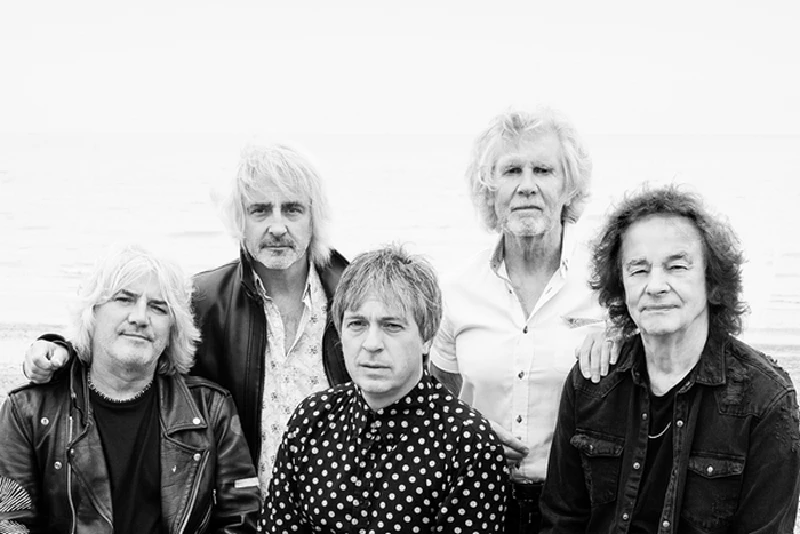
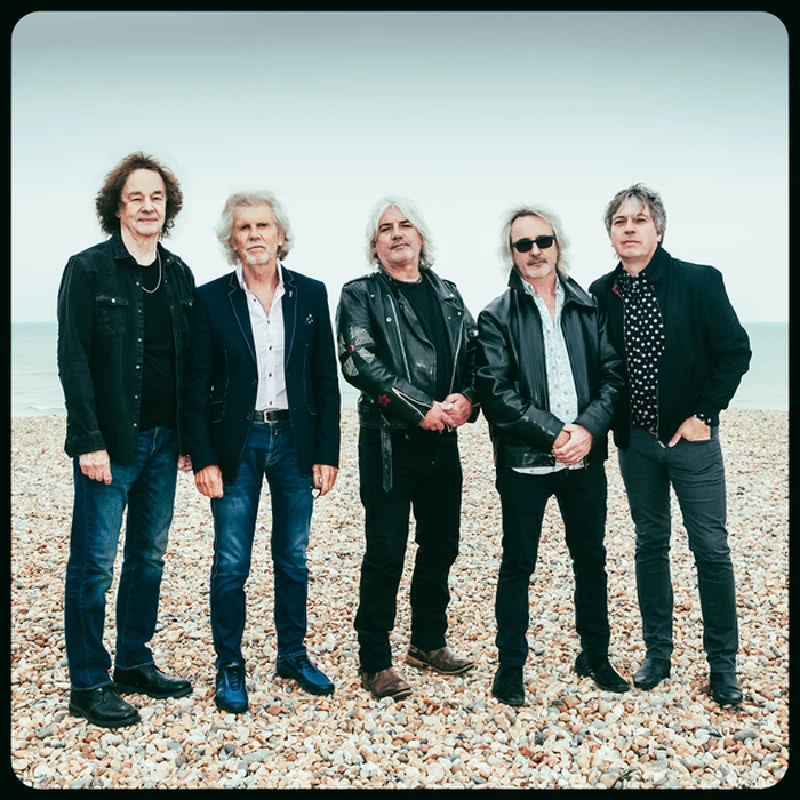
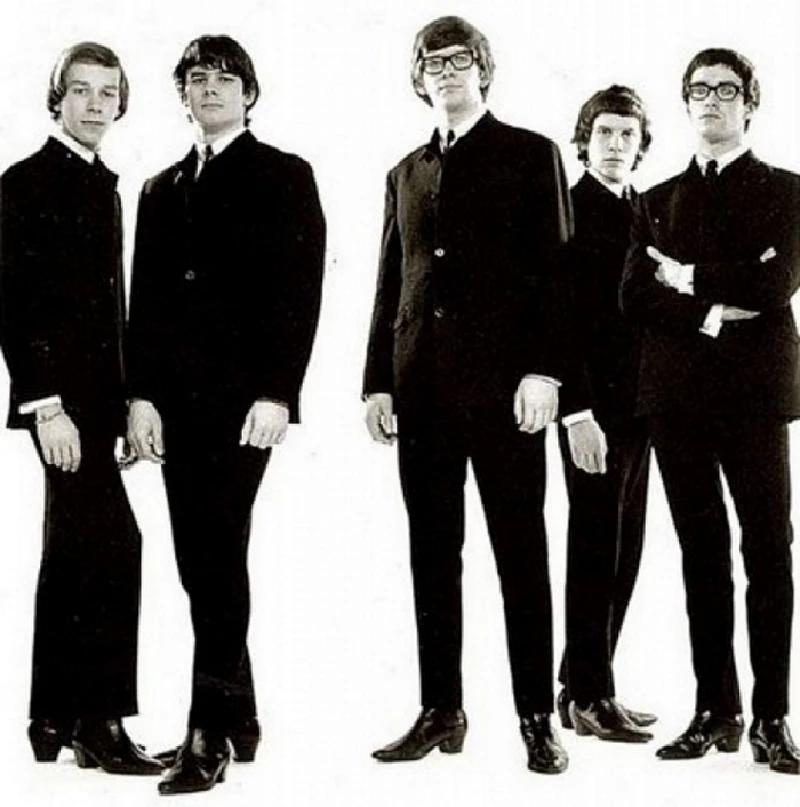
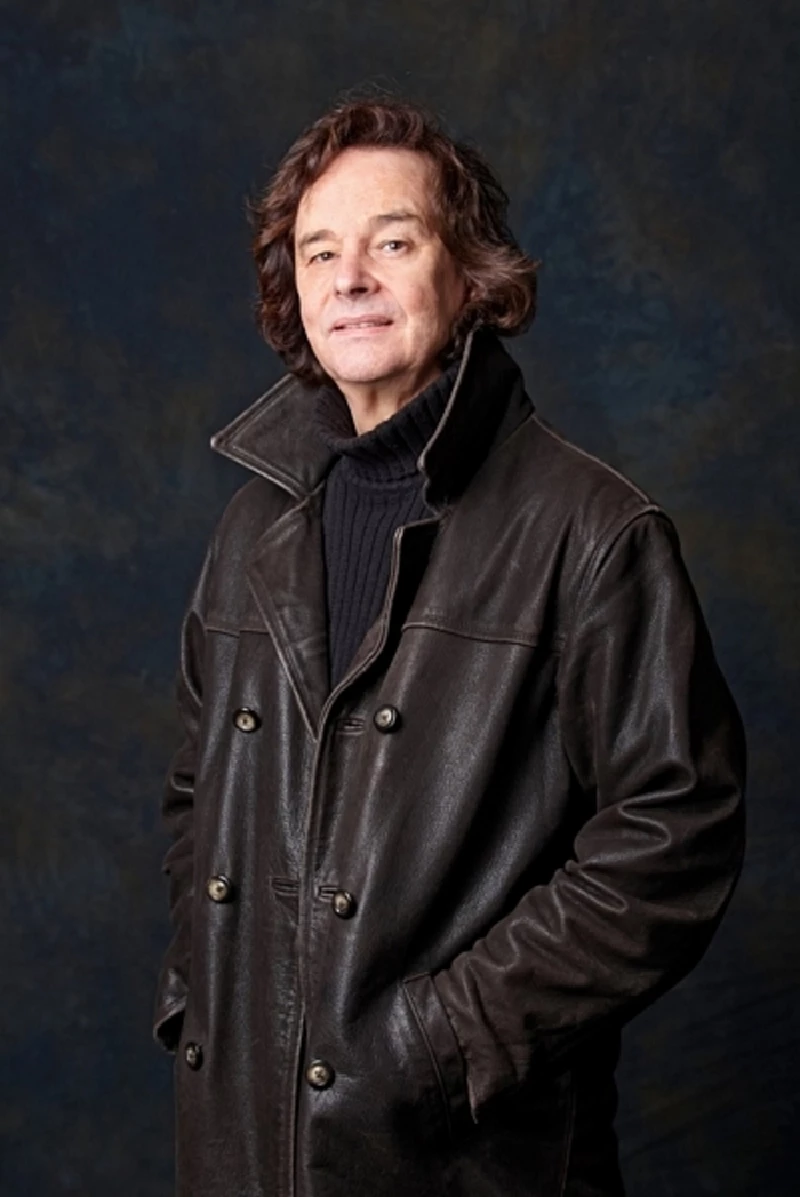
interviews |
|
Interview (2024) |
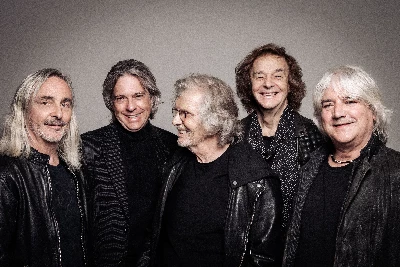
|
| Vocalist Colin Blunstone talks to Lisa Torem about the Zombies’ upcoming UK and US tours, special guests and how the music business has changed since the Sixties. |
| Interview with Rod Argent (2023) |
| Interview (2021) |
| Interview with Colin Blunstone (2018) |
| Interview (2016) |
| Interview (2016) |
| Interview (2015) |
| Interview (2011) |
profiles |
|
In the Beginning (2019) |
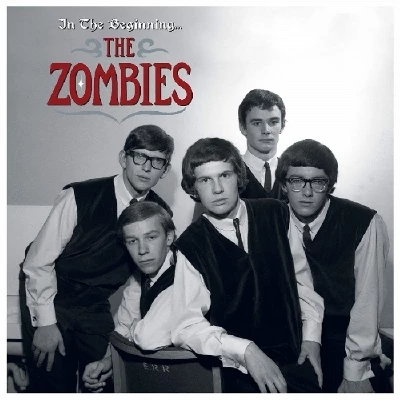
|
| Adam Coxon profiles 'In the Beginning', a new five LP vinyl only only box set of early Zombies recordings. |
live reviews |
|
Old Town School of Folk Music, Chicago, 1/7/2022 |
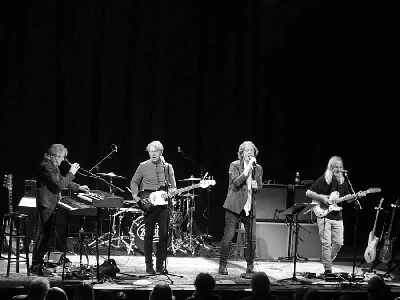
|
| After a two-year lockdown, The Zombies rose above adversity to tour and celebrate their 2019 Hall of Fame induction. Lisa Torem at the Old Town School of Folk Music in Chicago enjoys both the classics and new tunes. |
| City Winery, Chicago, 20/3/2018 |
| Mayne Stage, Chicago, 1/8/2012 |
| Ferry, Glasgow, 19/11/2011 |
photography |
|
Photoscapes (2015) |
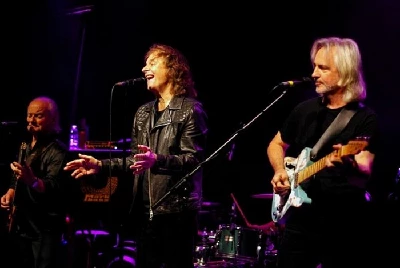
|
| Darren Aston takes photographs of iconic 60's band the Zombies at the Arts Club in Liverpool |
reviews |
|
Breathe Out Breathe In (2011) |
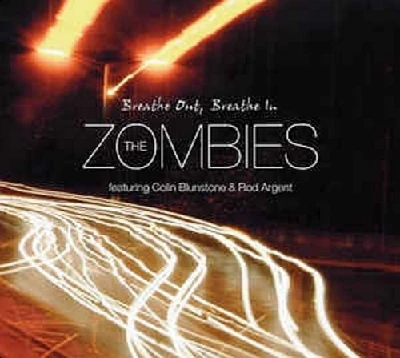
|
| Occasionally effective latest album from influential 60's act the Zombies, which, however, doesn't unfortunately match up to the classic work of their past |
most viewed articles
current edition
Carl Ewens - David Bowie 1964 to 1982 On Track: Every Album, Every SongArmory Show - Interview with Richard Jobson
Colin Blunstone - Thalia Hall, Chicago, 16/7/2025
Bathers - Photoscapes 1
Visor Fest - Valencia, Spain, 26/9/2025...27/9/2025
John McKay - Interview
Editorial - July 2025
Robert Forster - Interview
Loft - Interview
Billie Eilish - O2 Arena, London, 10/7/2025
previous editions
Heavenly - P.U.N.K. Girl EPManic Street Preachers - (Gig of a Lifetime) Millennium Stadium, Cardiff, December 1999
Oasis - Oasis, Earl's Court, London, 1995
Beautiful South - Ten Songs That Made Me Love...
Trudie Myerscough-Harris - Interview
Pixies - Ten Songs That Made Me Love...
Simon Heavisides - Destiny Stopped Screaming: The Life and Times of Adrian Borland
Paul Clerehugh - Interview
Doris Brendel - Interview
Prolapse - Interview
most viewed reviews
current edition
Amy Macdonald - Is This What You've Been Waiting For?Sick Man of Europe - The Sick Man of Europe
Alice Cooper - The Revenge of Alice Cooper
Phew, Erika Kobayashi,, Dieter Moebius - Radium Girls
Davey Woodward - Mumbo in the Jumbo
Lucy Spraggan - Other Sides of the Moon
Blueboy - 2
Cynthia Erivo - I Forgive You
Lapsley - I'm a Hurricane, I'm a Woman In Love
Philip Jeays - Victoria
Pennyblackmusic Regular Contributors
Adrian Janes
Amanda J. Window
Andrew Twambley
Anthony Dhanendran
Benjamin Howarth
Cila Warncke
Daniel Cressey
Darren Aston
Dastardly
Dave Goodwin
Denzil Watson
Dominic B. Simpson
Eoghan Lyng
Fiona Hutchings
Harry Sherriff
Helen Tipping
Jamie Rowland
John Clarkson
Julie Cruickshank
Kimberly Bright
Lisa Torem
Maarten Schiethart